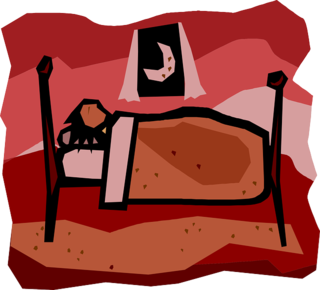Sleep
How Much Sleep Do School-Age Children Need?
A natural experiment provides one answer.
Posted November 24, 2018

The question of how much sleep children need is one that is not easy to answer. Professional organizations have recommended guidelines which include ranges for different age groups. For example, the National Sleep Foundation suggests that school-age children 6–13 years old should get 9–11 hours of sleep each night. But the basis for establishing those guidelines is unclear. It is a more difficult question to answer than one might expect, and it is similar to asking how much exercise children need or what nutritional needs they have. Complicating the question is that individual differences exist for children at any one age.
Children of all ages, but especially adolescents, seem to be getting less sleep than they need. The movement to have middle and high school start times later is based on the assumption that doing so will afford adolescents the opportunity to get more morning sleep, and also that they will actually get more sleep by not staying up even later at night.
Most school districts where later start times for teens have been considered or implemented, have set earlier start times for elementary school children, with the assumption that their sleep needs will not be compromised. With only a few exceptions, that assumption has received very little study.
One method for estimating how much sleep a child needs is to observe how much they sleep when there are no or few constraints on when they go to bed and wake up. Since the school week schedule dictates that wake times are around the same time each day, parents are responsible for making sure their children go to bed early enough to get sufficient sleep. But during school breaks, especially during summer months when most schools are not in session, bedtimes and wake times can be more flexible. These breaks create opportunities to determine how much sleep children might need.
A paper just published in the journal Sleep by a team of researchers at the University of South Carolina reports a study that includes measurements of sleep during two school breaks – one of a week duration, and one of three weeks duration, which were then compared to how much they slept when school was in session. Children (N=154) were between 5 and 9 years old (mean = 7). Sleep was measured objectively using Fitbits.
For both the one- and three-week breaks, children showed increased sleep time and later wake times. On a one-week break, they slept 38 minutes more and woke up 35 minutes later than when school was in session. During the three-week break, they slept 25 minutes more and woke up 46 minutes later. When school was in session, they slept far less than even the lower end of the recommended range (7 hours, 18 minutes vs. 9 hours). They were getting more sleep during the one week break (8 hours, 12 minutes) and the three-week break (7 hours, 48 minutes), but those durations were still short of 9 hours. Longer sleep times during breaks is a good estimate of how much sleep children of this age need. "Natural" wake times of 35–46 minutes later than when school is in session suggests that starting school an hour later — no earlier than 8:30 as is being recommended by professional organizations — is probably a good idea for all children, not just adolescents.
References
Weaver, M.W. et al. (2018) Changes in children’s sleep and physical activity during a one-week versus a three-week break from school: A natural experiment. Sleep, zsy205, https://doi-org.spot.lib.auburn.edu/10.1093/sleep/zsy205 published online October 24, 2018.


